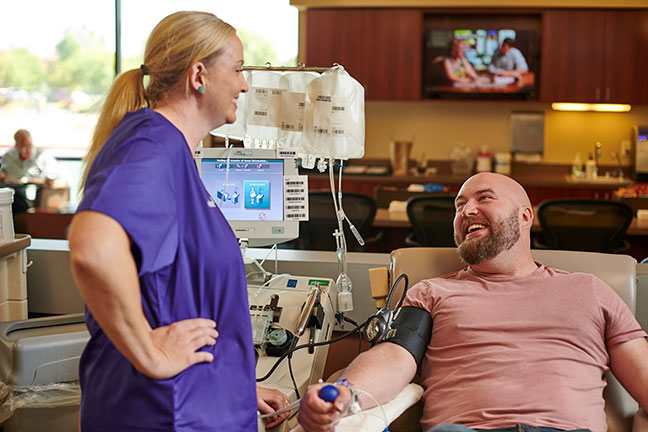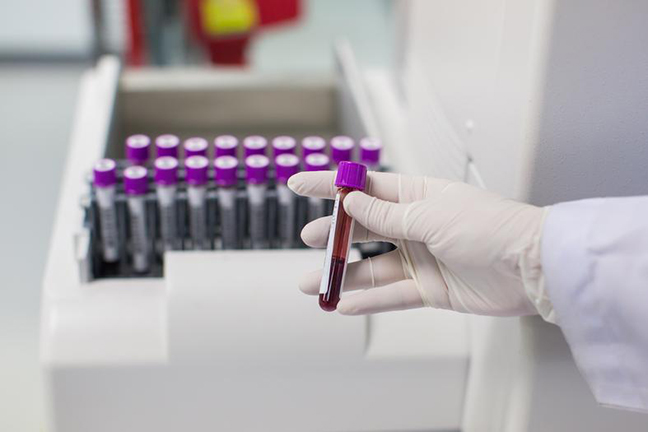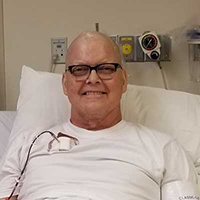24/7 Clinical Therapeutic Apheresis Services
Vitalant’s skilled clinical therapeutic apheresis team is available 24/7 to assist medical facilities across the country in treating a wide range of diseases affecting all ages, from infants to geriatric patients. Our broad experience in apheresis procedures, with 7400 varied procedures performed annually means we can counsel our medical partners regarding conditions they may rarely encounter.
Clinical apheresis procedures encompass the exchange of blood components or the selective removal of specific components. A portion of the blood is removed or treated, with the remaining components being returned to the donor.
Vitalant therapeutic services are conducted by our highly trained clinical therapeutic apheresis team that has decades of experience in markets across the nation. Vitalant partners with you in transforming patients’ lives by offering:
- Evidence-based practice.
- Medical Director oversight, consultation, guidance and patient management.
- Operational cost management savings.
- Physician/staff education programs.
- Research protocols and cellular therapy collections with active involvement.
- Comprehensive quality assurance plan.
- 24/7 scheduled, on-call and emergent procedure coverage.
- Procedures performed in outpatient and inpatient settings with Vitalant nurses traveling to the hospital site.
- Quarterly monitoring reports.
- Fast and reliable results through industry leading apheresis technology.
- Ability to move equipment between sites as required.


We're There When You Need Us
Like any true partnership, we’re there when you need us. That’s why we provide round-the-clock service to local hospitals for these comprehensive procedures:
- Plasma exchange
- Red cell exchange
- Platelet depletion
- White blood cell depletion
Other non-emergent procedures offered by Vitalant at various sites include:
- ECP (Extracorporeal Photopheresis)
- Peripheral blood progenitor cell collection
- LDL apheresis
Our Clinical Therapeutic Apheresis department is staffed by a director and supervisor/manager as well as highly skilled hemapheresis RN specialists. Our physician team supports protocols and stem cell collections. In addition, our physicians are available for technical and medical consultations, especially with emergent procedures.
Clinical Apheresis Procedures Offered
Below are several conditions treated using clinical/therapeutic apheresis. Please contact your physician for more information.

Procedure overview
Therapeutic Plasma Exchange (TPE) removes disease-causing proteins or abnormal pathological antibodies from plasma. During TPE whole blood is processed, separated and plasma is exchanged with a protein solution (most commonly albumin). The patient’s removed plasma is discarded. Replacement solutions, along with the remaining components are returned to the patient.
What does the procedure treat?
- Thrombotic Thrombocytopenic Purpura (TTP)
- Myasthenia Gravis
- Neuromyelitis Optica (NMO)
- Multiple Sclerosis
- Guillain-Barre Syndrome
- Other rare diseases

Procedure overview
Red Blood Cell Exchange (RBCx) removes abnormal or infected (Malaria, Babesia) red blood cells that can no longer effectively carry oxygen throughout the body. During RBCx the patient’s red blood cells are separated from the other blood components and replaced with healthy red cells from volunteer blood donors.
What does the procedure treat?
- Sickle Cell Disease
- Malaria, severe
- Babesiosis, severe
- Polycythemia Vera
- Red cell alloimunization prevention after exposure to Rh D+ RBC in women of childbearing age

Procedure overview
White Blood Cell Reduction (WBCr) is performed when a patient has an abnormally high white blood cell count. During the procedure the patient’s WBCs are removed and discarded and the remaining components and replacement solutions are returned to the patient.
What does the procedure treat?
- Hyperleukocytosis associated with certain types of leukemia

Procedure overview
Platelet Reduction (PLTr) is performed when a patient has an abnormally high platelet count. During the procedure the patient’s PLTs are removed and discarded and the remaining components and replacement solutions are returned to the patient.
What does the procedure treat?
- Chronic Myelogenous Leukemia with high platelet count
- Essential Thrombocytosis
- Disorders leading to increased platelet counts in symptomatic patients

Procedure overview
Extracorporeal Photopheresis (ECP) separates a patient’s white blood cells (WBCs) (leukocytes) from the other blood components. The white blood cells are treated with a medication called 8-methoxypsoralen and exposed to ultraviolet light. The treated WBCs are then returned to the patient.
What does the procedure treat?
- Cutaneous T-cell Lymphoma; mycosis fungoides; Sezary Syndrome
- Graft versus Host Disease (GVHD)
- Solid Organ Transplant Rejection, cellular

Procedure overview
Low Density Lipoprotein (LDL) Apheresis separates a patient’s plasma from the other blood components. Specialized filters then remove LDL (bad) cholesterol from the plasma and the filtered blood is returned to the patient.
What does the procedure treat?
- Familial Hypercholesterolemia
- LDL cholesterol levels of 200 mg/dl or higher with a history or coronary artery disease
- LDL cholesterol levels of 300 mg/dl or higher without coronary artery disease
- Focal segmental glomerularsclerosis (FSGS), recurrent in kidney transplant

Procedure overview
Red Blood Cell Reduction by Phlebotomy removes Red Blood Cells (RBCs) from a patient to decrease the RBC count and/or decrease iron overload in hyper-transfused states.
What does the procedure treat?
- Hemochromatosis
- Polycythemia Vera
- Secondary Polycythemia

Mononuclear cells (MNC) provide the starting material for a number of established and experimental cellular therapies, including enrichment and expansion, regenerative medicine, and immunization.

Procedure overview
Mononuclear Cell Collection (MNC) separates a donor or patient’s White Blood Cells (WBCs) from the other blood components. The MNCs are collected into a bag and the remaining blood components are returned to the donor or patient.
What does the procedure treat?
- Metastatic Cancers
- Autoimmune Disorders
- Lymphoma and Leukemia
- Brain Tumors

Procedure overview
Hematopoietic Progenitor Cell (HPCs) collection separates a patient’s HPC (stem cells) from the other blood components. The HPCs are collected into a bag and the remaining blood components are returned to the patient.
What does the procedure treat?
- Lymphoma
- Leukemia
- Multiple Myeloma
- Neuroblastoma

Lipid Absorption Column Testing
Vitalant in Pittsburgh is the only area clinic capable of supporting cardiology specialties with lipid absorption column testing. LDL apheresis is performed in the Therapeutic Hemapheresis outpatient department along with:
- Transfusions of blood products
- Infusions of medications
- Therapeutic phlebotomies
.jpg)
Mike, Extracorporeal Photopheresis (ECP) patient.
 Questions about existing test results? Contact 412-209-7270, or email infocoagulation@vitalant.org. For product or service inquires please use the contact us form.
Questions about existing test results? Contact 412-209-7270, or email infocoagulation@vitalant.org. For product or service inquires please use the contact us form.
